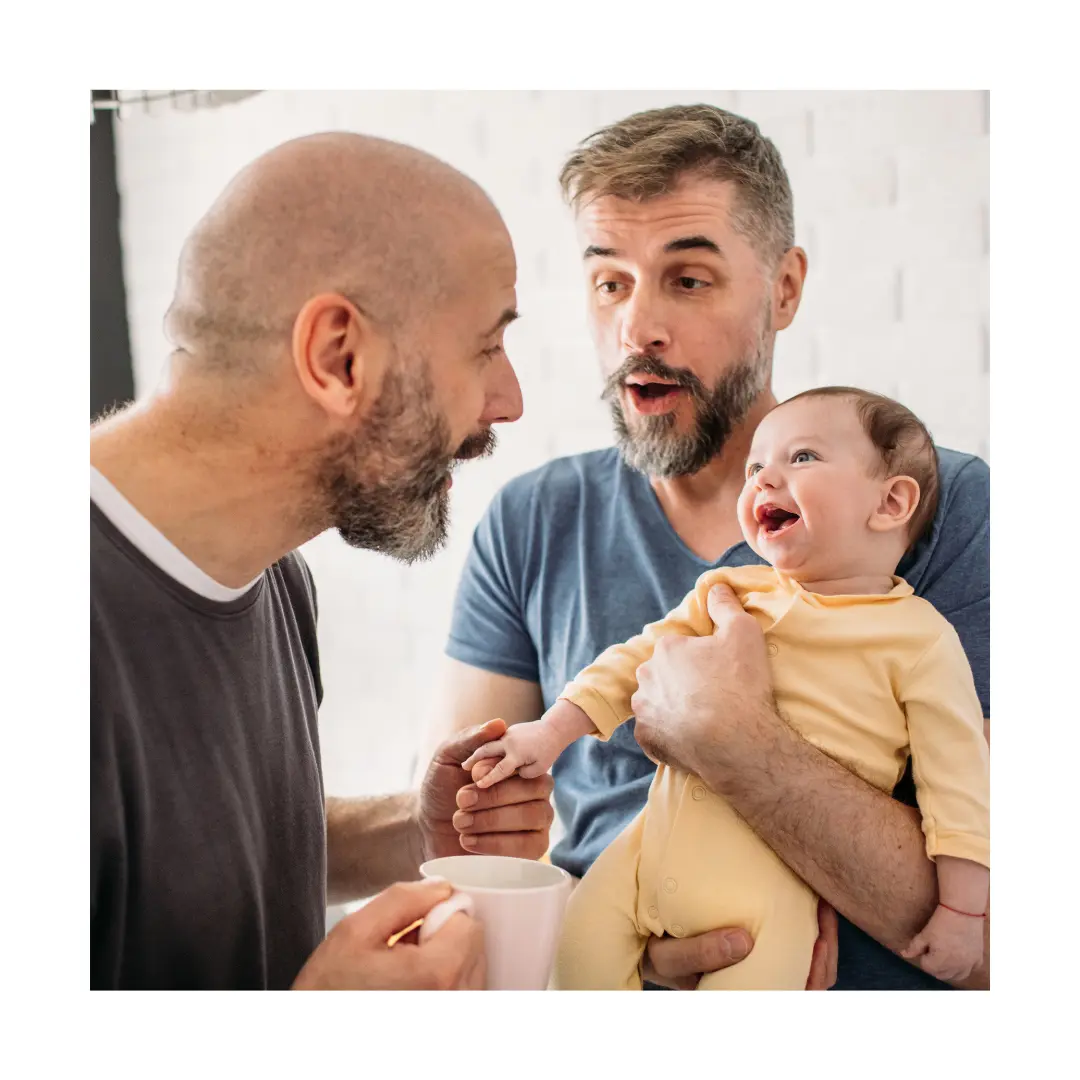
How Much Do Biological Ties Really Matter?
Sperm and egg donation never promises a relationship. It’s true

For many who chose adoption or donor conception the choice began from an initial place of loss. Unable to conceive or have a child without assistance this was the alternative. For others such as single parents and same sex couples such as myself, it is a choice that goes against ingrained societal norms of what a family looks like.
It is unsurprising then that for many of us there remains the fear of further loss of whether our child will blame us for our choices or reject us for their “real” father or mother.
This lingering shame, grief or even trauma can then trigger parental secrecy when we don’t come to terms with it.
Even when we know disclosing is the right thing to do there is the how and the when to contend with. Underplay the donor or birth parents and you risk turning them into the elephant in the room; go on about them too much you risk pathogising your child’s background.
Adoption professionals are closer to a consensus on whether and when to disclose information to children and this can help inform decisions made by donor conceived families where research in comparison is in its earlier stages.
The most common recommendation to adoptive parents is to disclose at a younger age before the age of 3. The logic being that it can be harmful to children’s mental health to discover their parents lied or misled them. Wait later and the child may come to the realization that everyone close to them has been consciously withholding information from them.
There are still a few that recommend waiting until the child is old enough to grasp concepts but most believe the gravity and permanence of dishonesty has much worse consequences than a temporary misunderstanding or oversimplification of donor conception or adoption.
This advice fits with attachment theories and developmental guidelines for children as well.
Babies and young children love and make strong emotional bonds with the people who love and take care of them. They do not care about who is genetically related to them. Most people’s earliest memories are from when they were about 3 years old.
By the time children are around 7 or 8, most are old enough to being to understand adoption and donor conception and this then requires a further detailed discussion built on the explanations given at a younger age. The relationship between parent and child is firmly established and there is a strong emotional connection. Questioning the non-genetic parent’s right to be a parent is highly unlikely, unless it is in a spirit of testing or sadness at the realisation that they are not the genetic child of someone they love very much. Parents are likely to be confident in their parenting which puts them in a good position to be ready for this leap in brain development that occurs at the age of 8 and which may trigger a round of questions about birth parents or donors.
The stage that is dreaded by most parents, but importantly not just donor conceived or adoptive parents is adolescence. For those that had help becoming parents as additional layer of fear may be the challenge of authority to non-genetic parents or blame at having been brought into their family by different means.
It is helpful to think about what is going on for both young people and parents at this life stage. Loss and identity are part of becoming a teenager. Giving up being a child and moving towards being an adult at various times can be a painful process. As a parent you may feel a loss of the child you knew as the relationship changes. Challenging your parents on their authority is a normal stage of this development. Exploring your identity is also expected at this age.
For those adopted or donor conceived this may include exploration or flirtation at least of knowing biological parents or donors.
What matters is how parents respond to this.
Parents of adolescents generally are guided to be able to withstand challenges, to remain in authority (without being overly harsh or disciplinarian) and to provide a framework of simple rules around safety while keeping the lines of communication open. Simple right? In the short it means neither becoming angry or crumbling when you are challenged.
In short, good parenting should not prevent normal curiosity in genetic inheritance.
You are helping them to understand themselves.
No matter what words you chose this information need not be a divide or difference but rather the action that brought you together as a family through love. You are their parent and they are your child. Maybe it’s as simple and complicated as that.

Sperm and egg donation never promises a relationship. It’s true

Being lesbionics in rural Nova Scotia meant our birth plan

The above is from an excerpt of her book, I